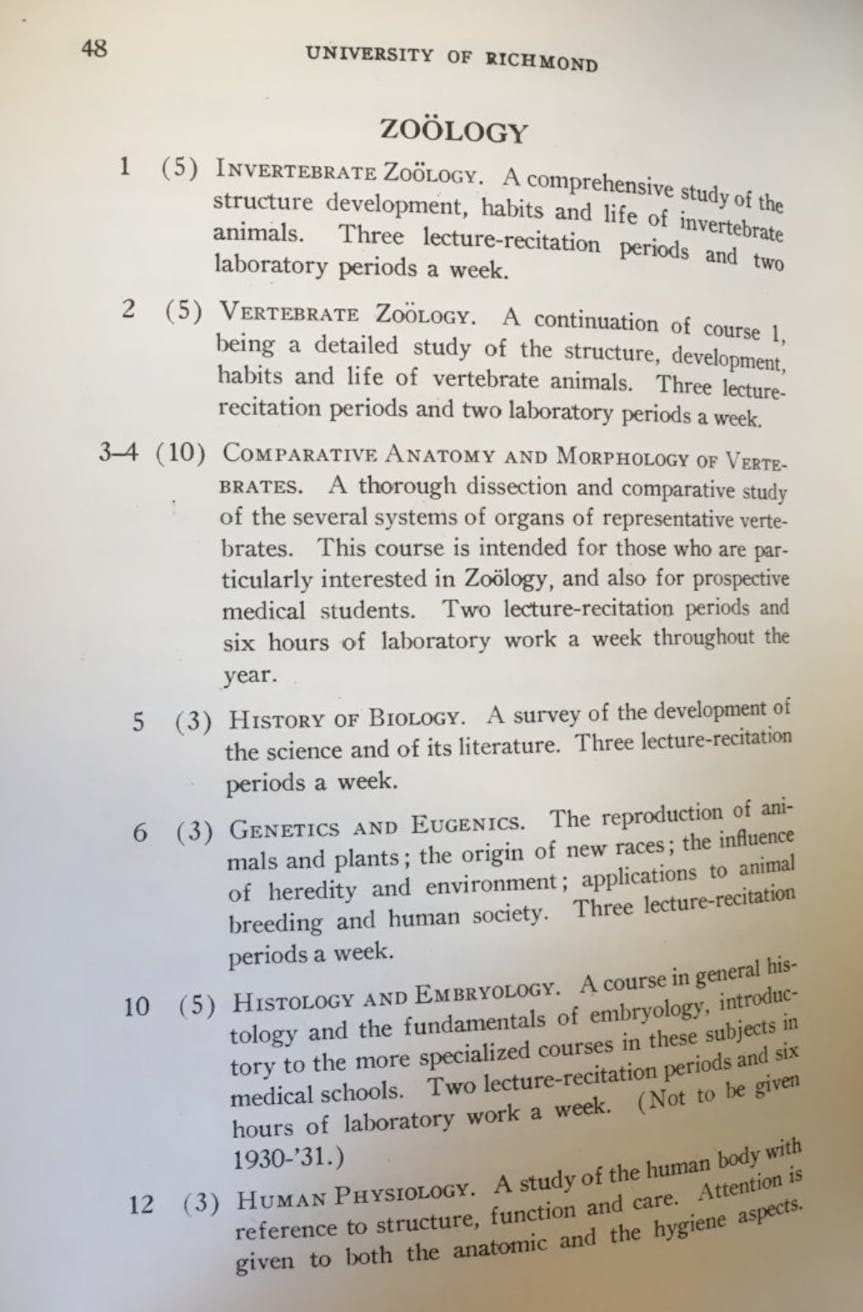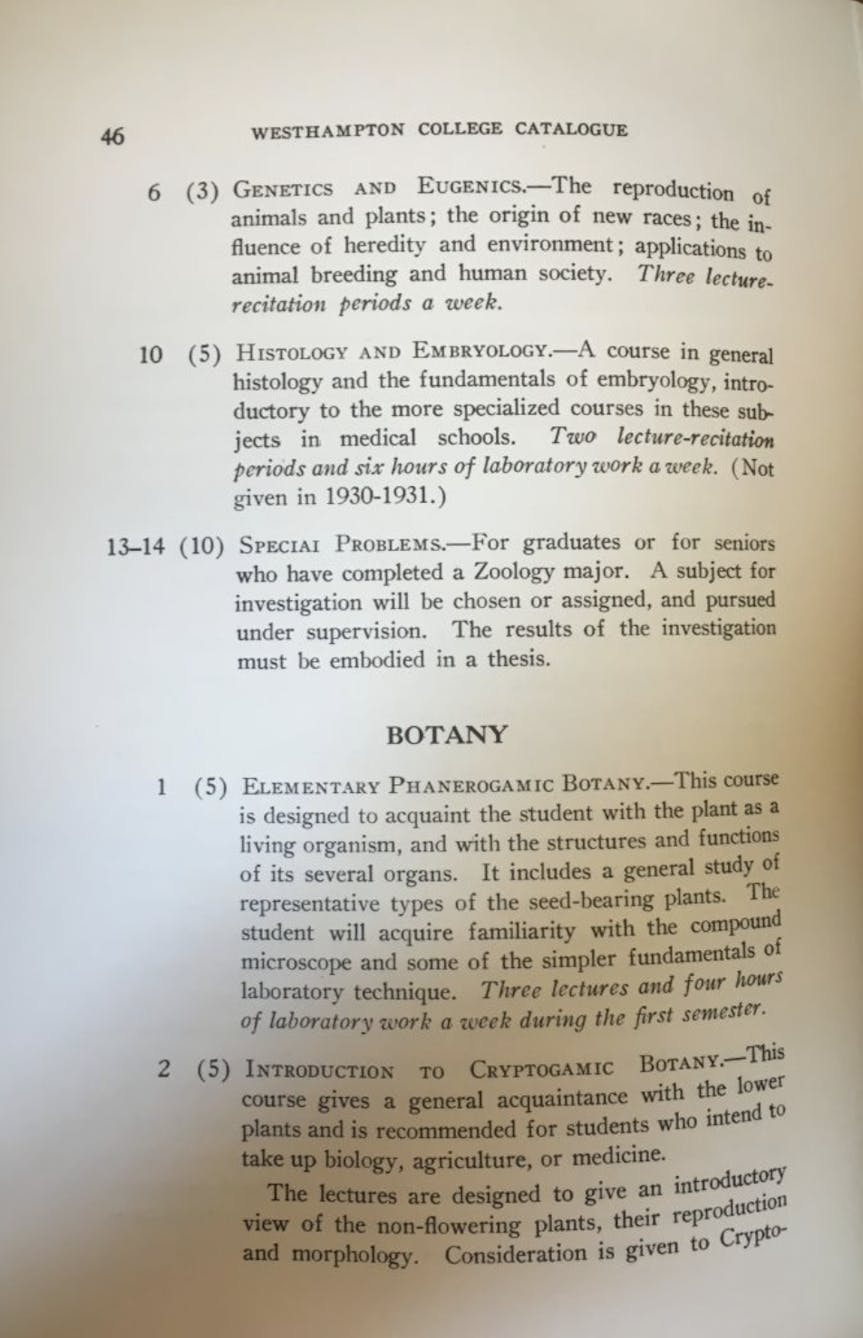Editor's note: This article was updated to include more information about UR's past course topics.
The University of Richmond taught eugenics courses in its biology department from 1927 to 1970, Yucel Yanikdag, professor of history, said.
Eugenics is defined as the practice of having people with “desirable hereditary traits” reproduce to create a “superior” popular, according to HISTORY. Eugenics was popular in the United States during the first half of the 20th century, and 33 states allowed involuntary sterilizations, mostly of people of color and people with mental health issues, according to HISTORY.
Yanikdag said he believed the first time he heard about UR’s eugenics classes was while reading a book about British eugenics that mentioned UR. He started to research eugenics at UR, and found that although the class titles did not always include the word eugenics, the concept was part of the science curriculum, he said.
In 1930, both Richmond College and Westhampton College course catalogs included classes titled “Genetics and Eugenics.”
The course description involves, “The reproduction of animals and plants; the origins of new races; the influence of heredity and environment; applications to animal breeding and human society,” according to the bulletins.
“Eugenics at the university -- as far as I know -- was a popular course,” Yanikdag said.

A 1930 course catalog for students of Richmond College advertising courses in science, including "Genetics and Eugenics."
John Hayden, professor of biology, wrote in an email to The Collegian on April 14 that the teaching of eugenics as part of biology had been fairly common in the past. Although eugenics has not been taught in the 40 years since Hayden started teaching at UR, he remembers former colleagues mentioning the class "Genetics and Eugenics," he wrote.
Although prominent in the biology department, the study of eugenics was interdisciplinary.
For example, a sociology course taught by Danile Bunyan Bryan in 1916 studied “defective, delinquent, and the dependent classes,” Yanikdag said. This class likely covered topics that saw Black people, Native Americans, immigrants, and lower-class White people as criminals or potential criminals, Yanikdag said.
Bryan also taught a class in 1917 in the psychology department about "a genetic study of the evolution of animal mind compared with the development of child intelligence psychology," which included a “mental testing” component,” Yanikdag said.
Enjoy what you're reading?
Signup for our newsletter
In the 1920s, support for eugenics was at a high both at UR and around the world, Yanikdag said. The professors who were teaching eugenics at UR were educated at Harvard University and were originally from Mississippi, showing that there was an interest in eugenics in campuses throughout the nation, Yanikdag said.
Additionally, students at UR in 1923 formed a campus branch of the Anglo-Saxon Clubs of America, a national organization founded in Richmond that promoted the "racial integrity" of white people, according to the Race & Racism Project.
The Anglo-Saxon Clubs of America was considered at the time to be an upper class version of the Ku Klux Klan and was mainly concerned with preventing interracial marriages and immigration of "undesirable" immigrants to keep the white race "pure," Yanikdag said.
Due to societal expectations of the time, studying eugenics was likely more prominent among Westhampton College students, Yanikdag said.

A 1930 course catalog for students of Westhampton College advertising courses in science, including "Genetics and Eugenics."
“[Eugenics is] imposed on women in a sense because they’re the ones who have children,” Yanikdag said. “Men feel like you have to convince women who are the protectors of the race, they need to learn racial hygiene.”
The Mortar Board, an honor society for seniors that UR used to have, sponsored lectures on eugenics for seniors, according to a 1936 Collegian article. These lectures were often given by Emily Gardner, a Westhampton College alumna and a member of the Board of Trustees from 1937 to 1956, according to the University of Richmond Magazine.
Gardner’s time on the Board coincided with eugenics advocate Douglas Southall Freeman’s time as rector of the Board, a position he held from 1934 to 1950. Westhampton students recalled in Gardner’s obituary her “excellent lectures on eugenics” and wrote that the lectures continued for many years after her first one in 1936 due to popular demand, according to the University of Richmond Magazine.
Eugenics classes were not taught every year, Yanikdag said. However, he said classes that discussed eugenics were on the books until 1970.
Contact news writer Lauren Oligino at lauren.oligino@richmond.edu.
Support independent student media
You can make a tax-deductible donation by clicking the button below, which takes you to our secure PayPal account. The page is set up to receive contributions in whatever amount you designate. We look forward to using the money we raise to further our mission of providing honest and accurate information to students, faculty, staff, alumni and others in the general public.
Donate Now



